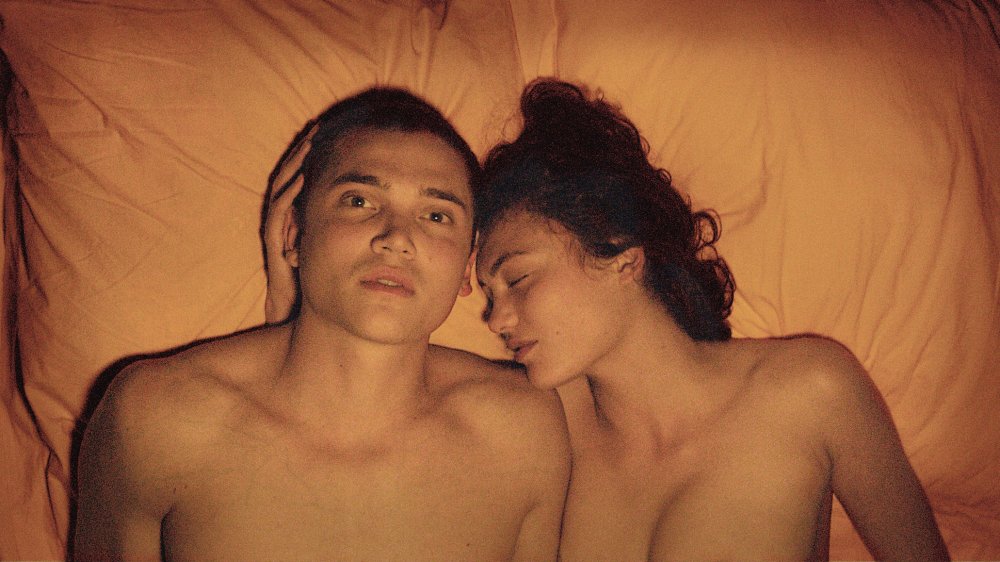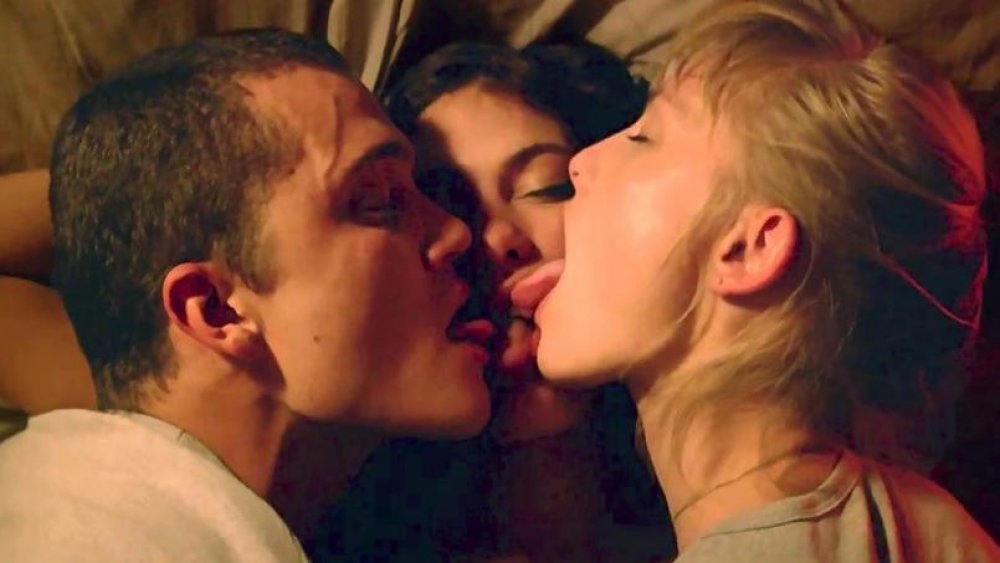The Ending Of Gaspar Noé's Love Explained
French filmmaker Gaspar Noé's Love made major waves at the Cannes Film Festival in 2015 before going on to become one of Netflix's most controversial properties. The erotic drama is only the fourth film in Noé's oeuvre, but its bold presentation and confrontational style — not to mention all those unsimulated sex scenes — earned the feature a fair amount warranted buzz. Many viewers taken in by the explicit imagery may be asking themselves, "What was it all about?" The confused response upon first viewing is understandable, but if you can peel back the onion of limbs and skin, Noé's shocking movie actually makes a salient point about the animal nature of love.
With all the explicit sex on screen in Love, it can be easy to overlook the emotional complexity of the film's plot — indeed, Noé's blatant and repeated objectification of his actors' bodies seems almost designed to obscure it. The film, which was shot and presented in 3D, becomes so absorbed in its titillating imagery at times that it can be easy for viewers to lose sight of the story and become trapped in the unrelenting progression of pornographic scenes. It's only when the film reaches its ultimate conclusion, that you realize the disorienting effect of Noé's direction has actually forced you to experience the kind of overwhelming infatuation that intoxicates the movie's leads.
Love follows Murphy (Karl Glusman) and his girlfriend Electra (Aomi Muyock) through the intensely sexual contours of their torrid affair. Murphy is an American art student living in Paris, which is where he meets Electra. The two young lovers experiment in the bedroom in just about every conceivable way, and as their relationship becomes more strained, their sex becomes more adventurous. Eventually, Electra agrees to invite a young Dane named Omi (Klara Kristin) into a three-way. Afterwards, Murphy pursues a relationship with Omi behind Electra's back, and eventually gets her pregnant. This is the transgression that ultimately pries him and Electra apart.
Murphy finds a way to replace his love for Electra
Much of the film takes place inside the frame of Murphy's recollections. He shares the ups and downs of his relationship with Electra in nonlinear fashion, with extra emphasis on their sexual chemistry. To hear Murphy tell it, his life with Electra was one big drug-fueled sexual romp through Paris — quite the semester abroad. So what was it all about?
According to Noé himself, it's all there in the title. The tragedy of Murphy's supposed love for Electra is that it seems to render him down to his meanest parts. In the beginning and end of the film, we see Murphy at his most vulnerable; yet, in most of the scenes in his recollection of Electra, he comes off as narcissistic and cruel. This is the challenging power of love, according to Noé.
"Love is a mammal feeling," the director told Paper in a recent interview. "It's made of willing to be protected by protecting people. You do that with your kids, your parents, your best friend, your partner in life. Falling in love is a complex process in your brain with addictive feelings. Love is an obsession with tunnel vision and that's what the beginning and ending are about. A love story can last for long but passion cannot because it's physically exhausting. In the movie, at the end when you see Murphy hugging his baby — he replaced his love for Electra that way."
There you have it. That last shot of Murphy hugging his 18-month-old child is meant to suggest that he has replaced his intoxicating love for Electra with a more stable parental love for his progeny. Love is as much a story of addiction, as it is a romance.
Love is currently streaming on Netflix if you're looking for an uncomfortable, steamy watch.

